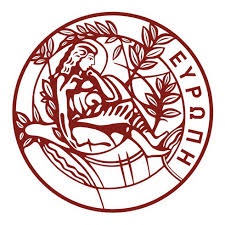 The University of Crete is a multi-disciplinary, research-oriented institution, situated in the cities of Rethymnon and Heraklion, comprising five Faculties and 17 Departments, with 14,480 students and 2,554 MA and doctoral students. The Research Secretariat currently handles over 900 projects varying widely in size, type and funding source. Grant incomes for the 4-year period 2008-2011 averaged €13.4 million a year, of which 75% relates to grants and contracts won specifically for research purposes. Research output is of a high standard, as seen in the Leiden Ranking for 2011-12, where the proportion of the University’s publications that belong to the top 10% most frequently cited, normalised for size, place the University 149th among the top 400 European Universities and 324th among the top 500 universities in the world. In the Times Higher Education One Hundred Fifty ranking of HEIs less than 50 years old, which recognises the ‘halo effect’ favouring old HEIs, UoC shares 50th place with a British and a Canadian University among the selected 100 ‘national treasures’.
The University of Crete is a multi-disciplinary, research-oriented institution, situated in the cities of Rethymnon and Heraklion, comprising five Faculties and 17 Departments, with 14,480 students and 2,554 MA and doctoral students. The Research Secretariat currently handles over 900 projects varying widely in size, type and funding source. Grant incomes for the 4-year period 2008-2011 averaged €13.4 million a year, of which 75% relates to grants and contracts won specifically for research purposes. Research output is of a high standard, as seen in the Leiden Ranking for 2011-12, where the proportion of the University’s publications that belong to the top 10% most frequently cited, normalised for size, place the University 149th among the top 400 European Universities and 324th among the top 500 universities in the world. In the Times Higher Education One Hundred Fifty ranking of HEIs less than 50 years old, which recognises the ‘halo effect’ favouring old HEIs, UoC shares 50th place with a British and a Canadian University among the selected 100 ‘national treasures’.
In TransSOL, research is conducted in the Department of Sociology, operating since 1987. The Department includes members with expertise in major fields of sociology, trained in reputable universities across Europe and North America, who have been participating in a wide variety of EC projects and activities including those under the 5th, 6th and 7th Framework.
We invite you to have a look at the Greek TransSOL website.
Team members
Maria Kousis 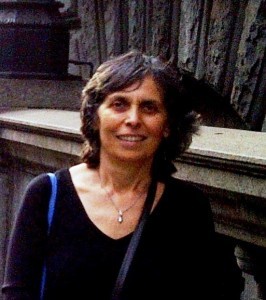 is the principal investigator of the Greek team. She is Professor of Sociology and Director of the Centre for Research and Studies at the University of Crete; she also served as Director of the MA & PhD program (2004-2008) and vice-Director of the MSc in Bioethics. She was coordinator of the EC DGXII project ‘Grassroots Environmental Action & Sustainable Development in the Southern European Union’ and partner in EC projects including TEA, PAGANINI and MEDVOICES. Publications include 11 edited volumes/books/special issues and 61 articles/book chapters, including Economic and Political Contention in Comparative Perspective (co-edited with Charles Tilly; Paradigm, 2005). Her research is focussed on Social Change, Contentious Politics, Environmental Politics, Bioethics and Southern Europe. Her current work focusses on the socio-economic and political dimensions of the crisis, especially in the context of the GGCRISI (Greek-German Ministries Cooperation) and LIVEWHAT (FP7) projects.
is the principal investigator of the Greek team. She is Professor of Sociology and Director of the Centre for Research and Studies at the University of Crete; she also served as Director of the MA & PhD program (2004-2008) and vice-Director of the MSc in Bioethics. She was coordinator of the EC DGXII project ‘Grassroots Environmental Action & Sustainable Development in the Southern European Union’ and partner in EC projects including TEA, PAGANINI and MEDVOICES. Publications include 11 edited volumes/books/special issues and 61 articles/book chapters, including Economic and Political Contention in Comparative Perspective (co-edited with Charles Tilly; Paradigm, 2005). Her research is focussed on Social Change, Contentious Politics, Environmental Politics, Bioethics and Southern Europe. Her current work focusses on the socio-economic and political dimensions of the crisis, especially in the context of the GGCRISI (Greek-German Ministries Cooperation) and LIVEWHAT (FP7) projects.
For up-to-date info, please visit her staff page.
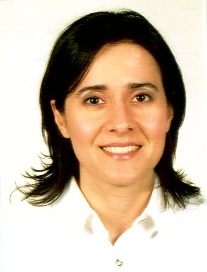 Eugenia Petropoulou is a member of the Greek team. She is a Lecturer in Rural Sociology in the Department of Sociology, University of Crete, Greece. She acquired her PhD in Sociology from the University of Manchester, UK, specialising in Rural Sociology and holds an MA in Sociology and Social Policy from the University of Durham, UK. Her recent research and writing (both Greek and English) have focussed on Rural Transformations, Agricultural Policies, Environmental Degradation, Sustainable Livelihoods and their social dimension of crisis as well as on Farmers’ Perceptions of bio-energy crops in Greece. She has been working as a researcher and research associate in different EU-funded projects. Currently she is working on: 1- LIVEWHAT – Living with Hard Times: How Citizens React to Economic Crises and Their Social and Political Consequences; 2- WATBIO Development of improved perennial non-food biomass and bioproduct crops for water-stressed environments and formerly on: 3- REA – study of Mother and Child – which was part of the New Generis and Hi-wate project; 4- MEDACTION – Land Use Policies to Combat Desertification; 5- TEA – Transformation of Environmental Activism; and 6- Sustainability, Democracy and Locality: Community Identity in the Sustainability Transition.
Eugenia Petropoulou is a member of the Greek team. She is a Lecturer in Rural Sociology in the Department of Sociology, University of Crete, Greece. She acquired her PhD in Sociology from the University of Manchester, UK, specialising in Rural Sociology and holds an MA in Sociology and Social Policy from the University of Durham, UK. Her recent research and writing (both Greek and English) have focussed on Rural Transformations, Agricultural Policies, Environmental Degradation, Sustainable Livelihoods and their social dimension of crisis as well as on Farmers’ Perceptions of bio-energy crops in Greece. She has been working as a researcher and research associate in different EU-funded projects. Currently she is working on: 1- LIVEWHAT – Living with Hard Times: How Citizens React to Economic Crises and Their Social and Political Consequences; 2- WATBIO Development of improved perennial non-food biomass and bioproduct crops for water-stressed environments and formerly on: 3- REA – study of Mother and Child – which was part of the New Generis and Hi-wate project; 4- MEDACTION – Land Use Policies to Combat Desertification; 5- TEA – Transformation of Environmental Activism; and 6- Sustainability, Democracy and Locality: Community Identity in the Sustainability Transition.
For up-to-date info, please visit her staff page.
Maria Paschou is a 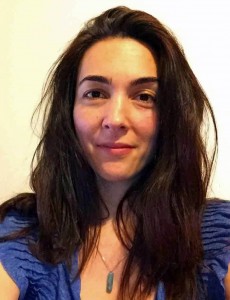 member of the Greek team and received her PhD in Sociology from the Department of Political Science and Public Administration, University of Athens in 2014 (MSc LSE, in Social Research Methods, 2004, MSc LSE, in Social and Public Communication, 2005). She has worked as a researcher for the Institute for the Study of Migration and Diaspora of the University of Athens, the University of Vienna and the National Centre for Social Research in Athens. Since 2014 she has been involved in projects focussing on crisis issues (LIVEWHAT, FP7; GGCRISI, German-Greek binational) and developed her research interest in the study of citizens’ solidarity initiatives to overcome the crisis.
member of the Greek team and received her PhD in Sociology from the Department of Political Science and Public Administration, University of Athens in 2014 (MSc LSE, in Social Research Methods, 2004, MSc LSE, in Social and Public Communication, 2005). She has worked as a researcher for the Institute for the Study of Migration and Diaspora of the University of Athens, the University of Vienna and the National Centre for Social Research in Athens. Since 2014 she has been involved in projects focussing on crisis issues (LIVEWHAT, FP7; GGCRISI, German-Greek binational) and developed her research interest in the study of citizens’ solidarity initiatives to overcome the crisis.
Marina Papadakis i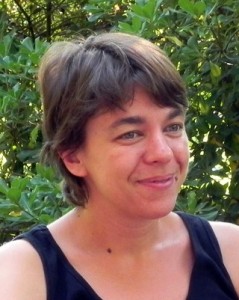 s a member of the Greek team. She is a statistician and member of the laboratory teaching staff at the University of Crete with research and teaching experience in quantitative methods in the Department of Sociology. She holds an MSc in Statistics from the Department of Statistics, Auckland University, New Zealand and currently is studying European Civilisation at the Hellenic Open University. Her interests focus on the implementation of statistical methods in social research. Her research includes topics related to the impact of mobile phone usage on youth socialisation and solidarity actions towards migrants at the local level, and her recent research has focussed on solidarity actions and networks in Chania, Crete.
s a member of the Greek team. She is a statistician and member of the laboratory teaching staff at the University of Crete with research and teaching experience in quantitative methods in the Department of Sociology. She holds an MSc in Statistics from the Department of Statistics, Auckland University, New Zealand and currently is studying European Civilisation at the Hellenic Open University. Her interests focus on the implementation of statistical methods in social research. Her research includes topics related to the impact of mobile phone usage on youth socialisation and solidarity actions towards migrants at the local level, and her recent research has focussed on solidarity actions and networks in Chania, Crete.
For up-to-date info, please visit her staff page.
Stefania Kalo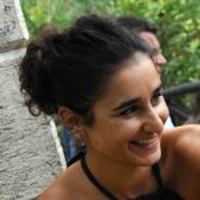 geraki is a member of the Greek team. She is an Assistant Professor in Quantitative Methods in Sociology and Social Demography in the Department of Sociology, University of Crete. She holds a BSc in Statistics (1998), an MA in Sociology with Research Training with Distinction (2002) and a PhD in Sociology (2007, University of Reading, UK). She has participated in European research (e.g. ‘LIVEWHAT: Living with Hard Times: How Citizens React to Economic Crises and Their Social and Political Consequences’, ‘GGCRISI: The Greeks, the Germans and the Crisis’, ‘Survey of Health, Ageing and Retirement in Europe’) and been the principal investigator in Greek research projects. Her main research interests include questionnaire design, quantitative comparative social research, social demographic analysis and mixed-method designs.
geraki is a member of the Greek team. She is an Assistant Professor in Quantitative Methods in Sociology and Social Demography in the Department of Sociology, University of Crete. She holds a BSc in Statistics (1998), an MA in Sociology with Research Training with Distinction (2002) and a PhD in Sociology (2007, University of Reading, UK). She has participated in European research (e.g. ‘LIVEWHAT: Living with Hard Times: How Citizens React to Economic Crises and Their Social and Political Consequences’, ‘GGCRISI: The Greeks, the Germans and the Crisis’, ‘Survey of Health, Ageing and Retirement in Europe’) and been the principal investigator in Greek research projects. Her main research interests include questionnaire design, quantitative comparative social research, social demographic analysis and mixed-method designs.
For up-to-date info, please visit her staff page.
Angelos Loukakis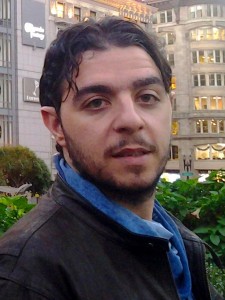 is a member of the Greek team and a Research Assistant at the University of Crete Research Fund. His research interests focus on Mobilisation, Collective Action, Protest, Social and Environmental Movements, etc. He is a Master’s (MSc) (2012) and a Bachelor’s degree (2007) holder in Sociology at the University of Crete. His master thesis was on local environmental protest and policies on waste disposal facilities in Greece, the case of Crete, 1998-2010. Currently he participates in the GGCRISI project (http://www.ggcrisi.info) and the LIVEWHAT project (http://www.livewhat.unige.ch). He is a founding member of the Sociological Association of University of Crete Alumni.
is a member of the Greek team and a Research Assistant at the University of Crete Research Fund. His research interests focus on Mobilisation, Collective Action, Protest, Social and Environmental Movements, etc. He is a Master’s (MSc) (2012) and a Bachelor’s degree (2007) holder in Sociology at the University of Crete. His master thesis was on local environmental protest and policies on waste disposal facilities in Greece, the case of Crete, 1998-2010. Currently he participates in the GGCRISI project (http://www.ggcrisi.info) and the LIVEWHAT project (http://www.livewhat.unige.ch). He is a founding member of the Sociological Association of University of Crete Alumni.
Stella Zamb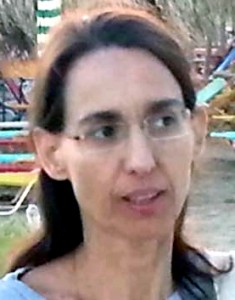 arloukou is a member of the Greek team. She is Assistant Professor in Sociology of Development in the Department of Sociology, University of Crete, Greece. She acquired her PhD in Sociology from New York University, USA. Her research interests evolve around South European societies, industrial relations, work and social policy. She has participated as a researcher in several EU-funded projects. She has recently co-edited a book with M. Kousis, titled Social Aspects of the Crisis in Greece, Pedio, Athens, 2014 (in Greek). She has also published two books, several journal articles and book chapters.
arloukou is a member of the Greek team. She is Assistant Professor in Sociology of Development in the Department of Sociology, University of Crete, Greece. She acquired her PhD in Sociology from New York University, USA. Her research interests evolve around South European societies, industrial relations, work and social policy. She has participated as a researcher in several EU-funded projects. She has recently co-edited a book with M. Kousis, titled Social Aspects of the Crisis in Greece, Pedio, Athens, 2014 (in Greek). She has also published two books, several journal articles and book chapters.
For up-to-date info, please visit her staff page.
Christina Karakioulafis is a member of the Greek team. She is an Assistant Professor in the Department of Sociology, University of Crete (Greece). Her courses are related to industrial relations and industrial sociology. She holds a ΒΑ in Social Policy and Social Anthropology, an MSc/DEA in Human Resources Development from CNAM (Conservatoire National des Arts et des Metiers) (Paris, France) (1997) and a PhD in Sociology from the University of Paris (2002). Since 2005, she has also been a member of the academic staff at the Hellenic Open University and instructor at the Academy of Work of the General Confederation of Greek Workers. Since 2012, she has been Research Coordinator in the research project, ‘The crisis as an agent of social change and social disorganization’, financed by the Labour Institute of the General Confederation of Greek Workers. Her main research interests are in trade unions, industrial relations trends and theory, workplace violence and artistic work.
For up-to-date info, please visit her staff page.
Maria Me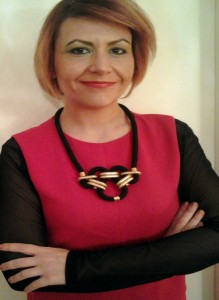 xi is a member of the Greek team. She is a Fellow at the Institute of Citizenship Studies at the University of Geneva and a post-doctoral researcher in the comparative project LIVEWHAT (EU FP7). She holds a Doctorate (DPhil) in Politics and International Relations and an MPhil in Political Theory from the University of Oxford, an MSc in European Social Policy from the London School of Economics and a BA in History from the American College of Greece. For her DPhil thesis, she examined the differential influence of the Open Method of Coordination on national social policy reforms (in the areas of active ageing and immigrants’ labour market inclusion) in Greece, Germany and Finland, outlining specific recommendations on how soft law can become more efficient as a governance tool. She has participated in several European and Greek research projects and worked as a social policy expert in technical assistance projects in developing countries. Her research interests fall within the areas of employment and social policy, welfare states in comparative perspective, Social Europe, open method of coordination, soft Europeanisation and European integration.
xi is a member of the Greek team. She is a Fellow at the Institute of Citizenship Studies at the University of Geneva and a post-doctoral researcher in the comparative project LIVEWHAT (EU FP7). She holds a Doctorate (DPhil) in Politics and International Relations and an MPhil in Political Theory from the University of Oxford, an MSc in European Social Policy from the London School of Economics and a BA in History from the American College of Greece. For her DPhil thesis, she examined the differential influence of the Open Method of Coordination on national social policy reforms (in the areas of active ageing and immigrants’ labour market inclusion) in Greece, Germany and Finland, outlining specific recommendations on how soft law can become more efficient as a governance tool. She has participated in several European and Greek research projects and worked as a social policy expert in technical assistance projects in developing countries. Her research interests fall within the areas of employment and social policy, welfare states in comparative perspective, Social Europe, open method of coordination, soft Europeanisation and European integration.
Kostas Ka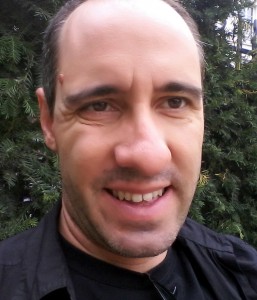 nellopoulos is a research fellow in the Greek team. He holds a Ph.D in Politics from the University of Panteion (2009), an M.A in Political Science and Sociology from the University of Athens (2000) and a Bachelor’s in Political Science and Public Administration from the University of Athens (1998). Kostas is the senior researcher of the Greek team in the GGCRISI project (www.ggcrisi.org) and also coordinates an independent research on “Social movement networks in Greece”. He is the Alternate Secretary at the Board of the Hellenic Political Science Association and an editor of the Greek Political Science Review. He has taught at the Higher Technological Institutes of Piraeus and Patras and at the University of Athens. He has published on social movements, globalization, and contentious politics in journals and in collective volumes in Greece and abroad.
nellopoulos is a research fellow in the Greek team. He holds a Ph.D in Politics from the University of Panteion (2009), an M.A in Political Science and Sociology from the University of Athens (2000) and a Bachelor’s in Political Science and Public Administration from the University of Athens (1998). Kostas is the senior researcher of the Greek team in the GGCRISI project (www.ggcrisi.org) and also coordinates an independent research on “Social movement networks in Greece”. He is the Alternate Secretary at the Board of the Hellenic Political Science Association and an editor of the Greek Political Science Review. He has taught at the Higher Technological Institutes of Piraeus and Patras and at the University of Athens. He has published on social movements, globalization, and contentious politics in journals and in collective volumes in Greece and abroad.
For up-to-date info, please visit his web page.
